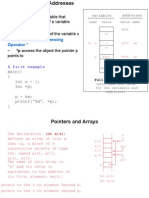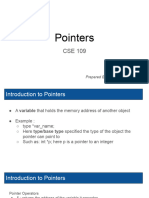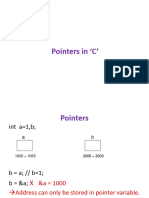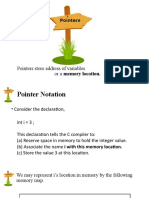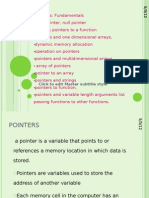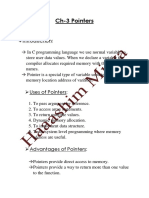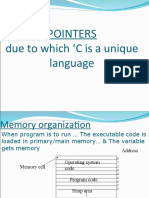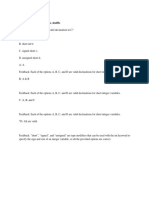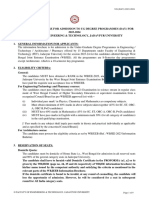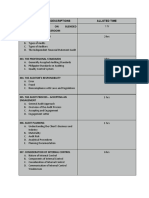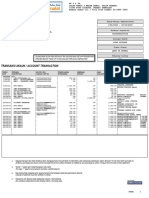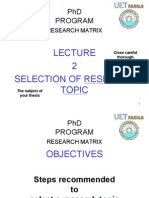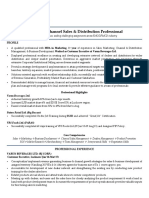0% found this document useful (0 votes)
53 views24 pagesCPNM Lecture 11 Pointers
This document discusses pointers in C programming. It defines pointers as variables that hold memory addresses and explains that pointer types define the types of variables they point to. It covers pointer operators, assigning pointers, passing pointers as arguments, pointers as return values, pointer conversions, dynamic memory allocation using malloc, calloc, and realloc, and pointer arithmetic.
Uploaded by
Saptarshi KunduCopyright
© © All Rights Reserved
We take content rights seriously. If you suspect this is your content, claim it here.
Available Formats
Download as PDF, TXT or read online on Scribd
0% found this document useful (0 votes)
53 views24 pagesCPNM Lecture 11 Pointers
This document discusses pointers in C programming. It defines pointers as variables that hold memory addresses and explains that pointer types define the types of variables they point to. It covers pointer operators, assigning pointers, passing pointers as arguments, pointers as return values, pointer conversions, dynamic memory allocation using malloc, calloc, and realloc, and pointer arithmetic.
Uploaded by
Saptarshi KunduCopyright
© © All Rights Reserved
We take content rights seriously. If you suspect this is your content, claim it here.
Available Formats
Download as PDF, TXT or read online on Scribd
/ 24


